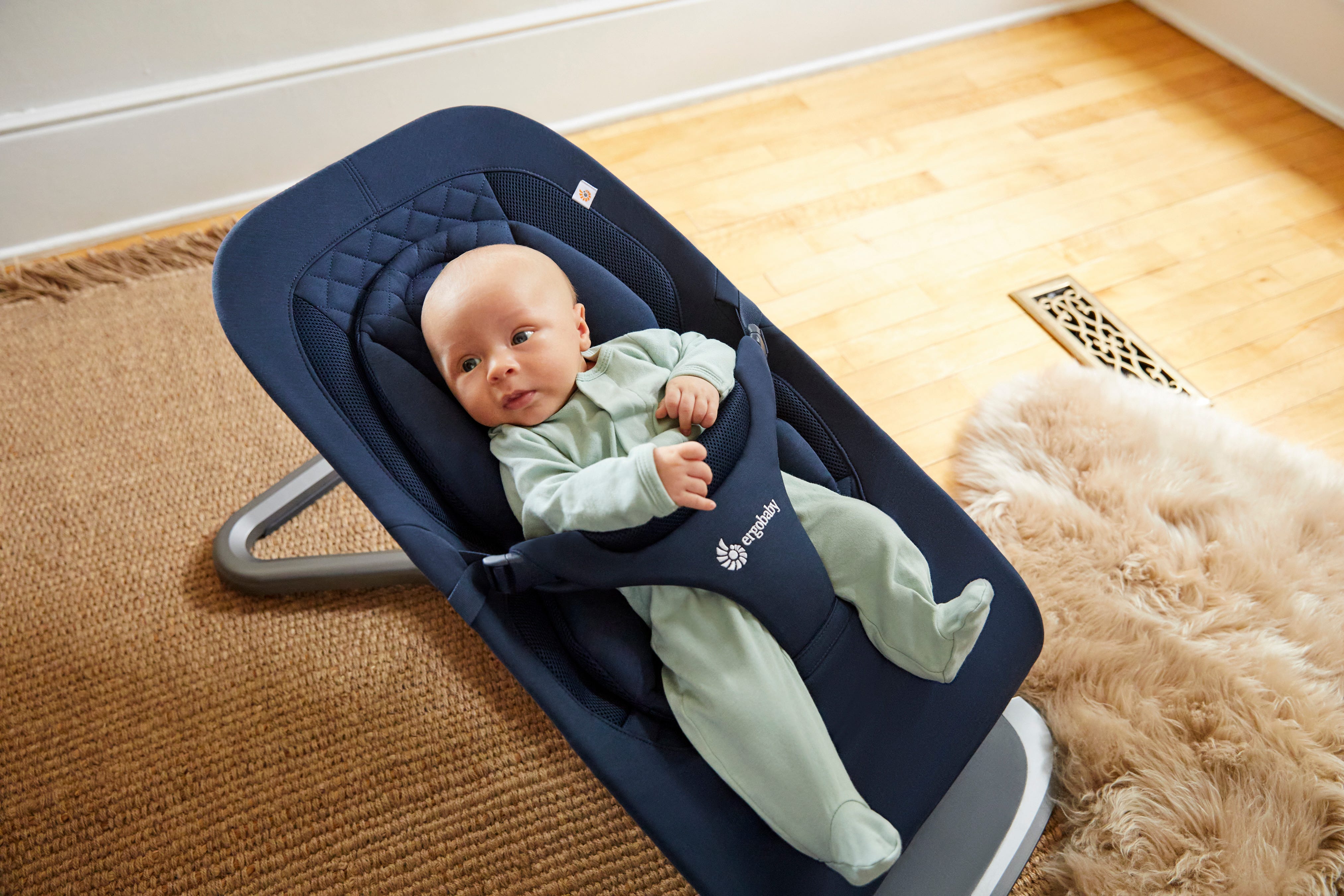As a parent, watching your baby grow and reach new developmental milestones is an exciting journey filled with many "firsts." From the first smile to the first steps, each milestone marks a significant moment in your child's development. However, understanding when and how these milestones should occur can be a bit overwhelming. This baby milestones chart is designed to help you track developmental milestones by weeks and months, offering insights into what to expect and tips on how to support your baby’s growth.
Developmental Milestones by Month
Newborn to 2 Months

- Social Smile: Your baby may start to smile at people around 6 weeks.
- Turns Head Toward Sounds: Your baby will begin to recognise and turn their head toward familiar voices.
- Holds Head Up: Around 2 months, your baby will start holding their head up during tummy time.
Reassurance:
If your baby isn’t smiling or responding to sounds by 2 months, don’t worry too much. Some babies take a little longer to warm up to the world. Keep providing a loving and stimulating environment.
Tips to Help Your Baby:
- Tummy Time: Encourage tummy time for a few minutes every day to strengthen neck and shoulder muscles.
- Talk to Your Baby: Regularly talk and sing to your baby to help them recognise and respond to your voice.
3 to 5 Months
Milestones to Expect:
- Grasping Objects: Your baby will start to reach and grasp for toys, improving hand-eye coordination.
- Rolls Over: Rolling from tummy to back usually starts around 4 months.
- Babbles and Coos: Your baby will begin to make more varied sounds, experimenting with their voice.
Reassurance:
If your baby isn’t rolling over by 5 months, give them more opportunities to practice during playtime. Every baby develops at their own pace.
Tips to Help Your Baby:
- Play with Toys: Offer your baby a variety of toys to grasp and explore, encouraging their curiosity and fine motor skills.
- Engage in Conversations: Respond to your baby’s coos and babbles to encourage more vocalization.

6 to 8 Months
Milestones to Expect:
- Sits Without Support: By 6-7 months, many babies can sit up independently.
- Begins Crawling: Crawling usually starts between 7-8 months, although some babies may skip crawling altogether.
- Responds to Own Name: Your baby will start to recognize their name and respond when called.
Reassurance:
If your baby isn’t crawling by 8 months, it’s okay. Some babies find their own unique ways to move, like scooting or rolling.
Tips to Help Your Baby:
- Encourage Movement: Place toys just out of reach during playtime to encourage crawling or scooting.
- Name Recognition: Use your baby’s name often when talking to them to help them recognize and respond to it.

9 to 12 Months
Milestones to Expect:
- Pulls to Stand: By 9-10 months, many babies will start pulling themselves up to stand.
- Cruising: Your baby may begin to move around while holding onto furniture.
- First Words: Around 12 months, your baby might say simple words like “mama” or “dada.”
Reassurance:
If your baby isn’t pulling up or cruising by 12 months, they may just need more time. Focus on strengthening their leg muscles with standing play.
Tips to Help Your Baby:
- Support Standing: Hold your baby’s hands and help them stand or cruise along furniture.
- Encourage Language Development: Read to your baby daily and name objects to expand their vocabulary.

How to Help Your Baby Reach Milestones
Create a Safe Environment: Ensure that your home is baby-proofed so your little one can safely explore and practice new skills.
Use Developmental Tools: Consider using tools like baby bouncers that can support physical development and connection. Ergobaby’s bouncer is a great option to help your baby strengthen their muscles while keeping them safe and comfortable.
Stay Patient and Positive: Every baby develops at their own pace. If you’re concerned about your baby’s development, consult with your pediatrician, but remember that slight delays are usually nothing to worry about.
3 Common Questions About Baby Milestones
Is my baby behind on milestones?
If you’re concerned that your baby isn’t reaching milestones, talk to your pediatrician. They can provide guidance and, if necessary, recommend early intervention services.
Do autistic babies hit milestones?
Autistic babies may reach milestones on a different timeline or in a different way. Early signs of autism can include delayed speech or not responding to their name. If you have concerns, it’s important to consult with your healthcare provider.
How to estimate milestones for premature babies?
Before diving into the specific milestones, it’s essential to consider how prematurity can affect a baby’s development. Premature babies often reach milestones later than their full-term peers. When tracking milestones for a premature baby, adjust their age based on their due date rather than their birth date. This adjusted age, known as "corrected age," gives a more accurate picture of your baby’s developmental progress. Tracking your baby’s milestones can be a joyful experience as you watch them grow and develop new skills. Remember, each baby is unique, and these milestones are simply guidelines. Celebrate every achievement, big or small, and enjoy the journey of watching your little one grow. For more tips and resources, check out our blog on developmental milestones.


